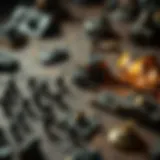Exploring the Depths of Paranormal Experience
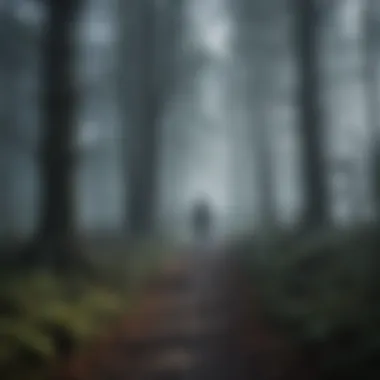

Intro
Paranormal experiences have fascinated humanity since the dawn of time. Whether it’s a ghostly apparition caught on camera or a hair-raising urban legend shared over campfires, these stories stitch together a rich tapestry of beliefs and interpretations. With roots planted deeply in folklore, the paranormal often delves into the complex intersections of psychology, culture, and historical narrative. In our exploration of these experiences, we will scrutinize personal accounts that evoke both awe and skepticism. The journey will illuminate how different cultures interpret the unexplained, providing a multifaceted understanding that goes beyond the eerie tales themselves.
The modern landscape of cinema, television, games, and comic books has woven a new layer into this rich narrative. These platforms have not only amplified interest in paranormal themes but also challenged conventional thoughts about what lies beyond the veil of normalcy. As we dive deeper, it becomes essential to dissect these varied expressions of the paranormal, highlighting how they reflect societal fears, hopes, and beliefs.
By the end of this article, you will acquire a well-rounded perspective, questioning traditional perceptions while appreciating the vast array of interpretations. This exploration will not just be about ghosts and unexplained phenomena but about the lens through which we view the unknown.
Defining the Paranormal
Defining the paranormal is not merely an exercise in academic analysis; it's an invitation to delve into the uncharted territories of human experience. This section lays the groundwork for understanding a realm often dismissed or shrouded in skepticism. By establishing a clear definition, we set the stage for exploring the multifaceted dimensions that include psychological, cultural, and historical elements associated with phenomena that defy conventional explanation.
Paranormal experiences stir curiosity and elicit a range of responses from individuals and cultures alike, framing a narrative that blends scientific inquiry with personal belief. Addressing how we define the paranormal helps clarify the vast landscape it occupies, which often overlaps with the unknown–a territory feared or embraced, depending on one’s perspective. This distinction is vital in providing insights that bridge varied interpretations and experiences.
Contemporary Understandings
In today’s world, the understanding of the paranormal has become more nuanced than ever. With the advent of technology and the internet, communities have risen to share their experiences, each contributing to a collective knowledge base. No longer are these experiences relegated solely to hushed whispers or late-night ghost stories told around a campfire. Platforms like Reddit or Facebook allow individuals to gather, reflect, and share information about their encounters.
For many, the contemporary view of what is considered paranormal is influenced by media portrayals in film and television. Ghost hunting shows and documentaries bring to light experiences, showing evidence and personal accounts that are difficult to dismiss outright. Aspects like electronic voice phenomena—or EVPs—have become buzzwords, leading many to investigate their own homes with devices designed to capture what lies beyond the veil of normalcy.
The accessibility of information also introduces a wave of skepticism. Many now question the credibility of certain experiences and those who claim them, leading to a burgeoning interest in the scientific method as applied to the paranormal. But one size does not fit all; while some individuals find solace in explanations rooted deeply in science, others prefer to embrace the enigmatic nature of their experiences, challenging the limits of understanding.
Historical Perspectives
Looking back, the history of the paranormal reveals a tapestry woven from the concerns and curiosities of civilizations throughout time. Ancient cultures often had rich mythologies filled with spirits, deities, and otherworldly beings. For instance, tales of ghosts and entities were recorded in early Mesopotamian texts and showed a profound understanding or interpretation of life beyond death.
In medieval Europe, the understanding of the supernatural morphed into something more structured as the Church dominated societal views. Those who claimed to experience the paranormal were often labelled as witches or heretics, leading to severe repercussions. This period underscores how societal norms and fears can shape the perception of paranormal events.
Fast-forward to the 19th and 20th centuries; the rise of spiritualism in the Western world indicates a shift in how individuals approached the unexplained. Seances and mediums became commonplace as people sought to communicate with the dead, evidencing a growing desire to understand existence beyond our corporeal lives. The fascination with the paranormal became a reflection of the era's broader issues: questions of mortality, reality, and the human experience itself.
Modern historical analyses shed light on how these beliefs evolve relative to the times – from phrenology in the 1800s to today's more digital approach, the narrative continues to be written. These perspectives are instrumental in forming a well-rounded understanding of today’s paranormal landscape, as contemporary debates often echo historical concerns.
"The study of the paranormal is less about finding definitive answers and more about exploring the questions that persist, revealing much about human nature itself."
By defining the paranormal, we embark on a journey that not only investigates the unexplained but also respects the intricate beliefs and cultural phenomena developed over centuries. This foundational understanding is essential, as it informs all subsequent conversations about the types of paranormal experiences encountered, the psychological perspectives surrounding these events, and cultural interpretations that fill the void where scientific understanding may falter.
Types of Paranormal Experiences
Understanding the various types of paranormal experiences is crucial for anyone delving into this intriguing topic. Each type offers a window into people’s beliefs, challenges in perception, and even the limits of human understanding.
Ghost Sightings and Encounters
Ghost sightings and encounters have fueled countless stories and myths, both in popular culture and personal accounts. These experiences often provoke deep emotional responses, from fear to curiosity. People report glimpses of familiar faces or unexplained noises that challenge conventional understanding of life and death.
What's compelling is how these encounters often weave themselves into the fabric of local folklore. Many cultures have tales of spirits returning to deliver messages or seek closure, creating unique narratives that resonate across generations.
"Whether it's a haunted house in New Orleans or apparitions appearing in Japan, ghostly tales echo with uncanny familiarity across the globe."
The significance of these stories often lies in their ability to connect communities and preserve histories, blending belief with cultural identity. By studying these ghostly encounters, we gain insights into societal fears, hopes, and the profound human desire for connection.
Extraterrestrial Contact
Extraterrestrial contact represents a different facet of the paranormal experience, often leading to questions about our place in the universe. While many view these experiences skeptically, there remains a fervent belief among some that we’re not alone. Reports of unidentified flying objects (UFOs) and abduction stories paint a picture of cosmic intrigue.
In the realm of media, from television shows like "The X-Files" to movies such as "Close Encounters of the Third Kind," these experiences are dramatized, adding layers of complexity to the narrative. The relevance of these encounters transcends mere spectacle; they force us to confront existential questions, pushing boundaries of scientific inquiry and philosophical thought.
Psychic Phenomena
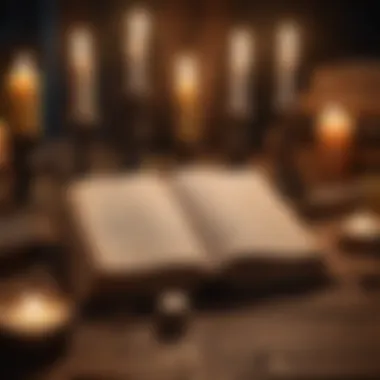

Psychic phenomena are perhaps the most controversial among paranormal experiences. This includes abilities like telepathy, precognition, and mediumship. Some people dismiss these claims outright, while others embrace them as genuine abilities that tap into hidden dimensions of reality.
Throughout history, societies have revered psychics, often viewing them as harbingers of wisdom or as guides in times of uncertainty. Current psychological studies look at the implications of belief in psychic abilities, and their effects on mental health and well-being. Understanding these perspectives enriches the overall discourse on human cognition, diving deep into how belief and perception intertwine.
Otherworldly Experiences
Otherworldly experiences encompass a variety of phenomena that don't neatly fit into the aforementioned categories. These may include near-death experiences (NDEs), out-of-body experiences (OBEs), and even lucid dreams that feel incredibly real.
They're often described with rich detail, painting vivid pictures of alternate realities or existences beyond our understanding. By examining these narratives, we can delve into personal transformations and shifts in worldview resulting from such profound encounters.
The complexity of otherworldly experiences invites a deeper exploration of consciousness, pushing the boundaries of what we perceive as reality. It raises questions regarding the nature of existence, life after death, and the potential interconnectedness of all beings.
In summary, the types of paranormal experiences examined here are rich with cultural significance and personal meaning. By engaging with them, we can foster a more nuanced understanding of the human experience as a whole.
Psychological Perspectives
Understanding the psychological perspectives surrounding paranormal experiences is crucial. Our minds often shape how we interpret the world, and the paranormal is no exception. Through various psychological lenses, we can delve into the intricacies of how and why people encounter or believe in paranormal phenomena.
Cognitive Biases and Perception
Cognitive biases play a significant role in how we perceive paranormal events. Our brains are hardwired to recognize patterns, which can lead us to see connections where none exist. For instance, when someone reports seeing a ghost, cognitive bias may prompt observers to jump to conclusions, attributing meaning to shadows and sounds due to existing beliefs about the supernatural.
A common example is the pareidolia phenomenon: when we see familiar shapes in random stimuli. People might look at an old wall and perceive a face where there is none. This psychological tendency helps explain why so many people report ghostly encounters in places steeped in history.
Furthermore, people are often prone to confirmation bias—in other words, they seek out information that supports their existing beliefs while disregarding evidence to the contrary. This makes it challenging for individuals to approach paranormal experiences with neutrality, thereby amplifying their own perceptions and interpretations.
The Role of Belief Systems
Belief systems serve as the bedrock for our understanding—or misunderstanding—of paranormal events. Culture, religion, and personal experiences all influence how one might interpret a haunting, an alien sighting, or a psychic phenomenon. For instance, someone raised in a culture rich with ghost lore might be more inclined to accept ghost sightings as plausible compared to someone from a culture dismissing such narratives as mere superstition.
This interplay of beliefs can lead to differing interpretations of the same experience. A person feeling an unusual presence might find solace in the notion of guardian angels or spiritual visitations, while another might feel threatened by the same sensation, seeing it as a malevolent force.
In a world cluttered with competing belief systems, the subjective nature of perception underscores the importance of recognizing how these psychological frameworks shape our understanding of what is paranormal.
Mental Health and Paranormal Experiences
The relationship between mental health and paranormal experiences is nuanced and critical to explore. While some might view paranormal encounters as authentic and profound, they can also stem from underlying psychological conditions.
Conditions such as schizophrenia or severe anxiety can cause vivid hallucinations or anxiety-fueled interpretations of ordinary occurrences. Individuals struggling with these mental health issues might find themselves immersed in supernatural beliefs to cope with their realities.
Moreover, the stigma associated with mental illness often leads individuals to seek explanations beyond the medical realm, which can fuel paranormal beliefs. This intersection raises important ethical considerations, especially in how we treat those who claim to have experienced paranormal phenomena. Understanding their situations with empathy rather than skepticism can create a supportive environment for those trying to navigate their experiences.
"Mental health and the paranormal; sometimes they dance together in a complex tango, illuminating the shadows of perception."
Cultural Contexts
Understanding cultural contexts is crucial when delving into the phenomenon of the paranormal. Culture shapes how individuals interpret unusual experiences and dictates the lens through which such events are viewed. From folklore to modern media, cultural practices, narratives, and beliefs play significant roles in how the paranormal is perceived and understood.
Different societies have unique folklore and mythologies that inform their worldviews. These rich narratives often serve as frameworks for explaining the inexplicable, demonstrating the complexity and diversity of beliefs surrounding paranormal occurrences. By studying these cultural artifacts, one can gain insight into collective fears, values, and the human psyche. It reveals the nuances that social interactions foster in interpreting paranormal events.
Folklore and Mythology
Folklore encompasses the traditional beliefs, myths, legends, and stories that are passed down through generations. These stories often involve ghosts, supernatural beings, or unexplained phenomena. For instance, in many cultures, there's a recurring theme of restless spirits haunting the living. This reflection of cultural anxieties can be seen in tales like Japan's Yurei, or the classic English ghost stories often found in Victorian literature. Such narratives weave a rich tapestry that clues us into cultural fears, hopes, and moral lessons that communities prioritize.
Furthermore, folklore provides a means of social cohesion. Communities share these stories not only for entertainment but also as a way to explain their realities. They reinforce cultural values and norms, strengthening identity among members of the community. People feel a sense of connection through shared narratives; thus, the paranormal becomes a way for individuals to understand their place in the universe.
Cultural Variations in Perception
The way paranormal experiences are understood can significantly differ across cultures. Superstitions, beliefs in different entities, or even interpretations of what constitutes a paranormal event vary widely. For example, while many Western cultures tend to view ghosts predominantly as ominous entities, certain Indigenous cultures see them as ancestral spirits that guide and protect.
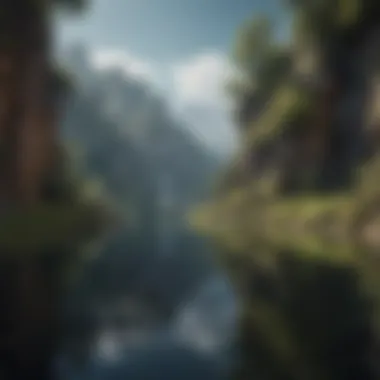

These variations tell a fascinating story of humanity’s relationship with the unknown. In some cultures, contacting spirits through rituals is a form of respect, while in others, it could be seen as an invitation for trouble. This discrepancy raises questions about the nature of belief itself and the profound connection between experience and interpretation.
- Cultural Elements Influencing Perception
- Language: The words and terms used can shape how experiences are interpreted. Terms for spirits or supernatural events may not have direct translations across cultures.
- Traditions: Rituals embedded in cultural practices frame paranormal encounters in a particular context, either as sacred or profane.
- Education and Exposure: The degree to which individuals are educated about differing belief systems can shape how they accept or reject personal experiences of the paranormal.
Paranormal in Popular Culture
The influence of paranormal themes in popular culture cannot be overstated. . Movies, television shows, and literature have increasingly popularized supernatural themes, often reflecting or influencing societal views. Franchises like "Ghostbusters" or shows like "The X-Files" have not only entertained audiences but have also provoked discussions about the validity of paranormal claims.
Moreover, the portrayal of paranormal topics in media can shape public opinion. They foster curiosity and skepticism, sometimes leading individuals to explore their beliefs further. Popular culture also takes great liberties in its representations, merging folklore with creative storytelling. This not only serves entertainment but sparks wider conversations about the unseen and the mystical within our lives.
Scientific Inquiry
The realm of paranormal experiences often treads a fine line between the known and the unknown. This tension makes the study of these phenomena not just intriguing but essential. Scientific inquiry serves as a cornerstone in helping us sift through myths, beliefs, and anecdotal evidence surrounding such experiences. It urges us to take a step back and analyze the phenomena through structured methodologies that demand rigor and objectivity.
Understanding the importance of scientific inquiry in this field helps highlight several key points:
- Debunking Myths: Research based on evidence allows for the dissection and questioning of long-held myths. This critical analysis is what separates baseless speculation from genuine exploration.
- Clarifying Experiences: Scientific inquiry helps in categorizing many nebulous experiences into understandable terms, making it easier for both researchers and enthusiasts to relate to the phenomena without stumbling into superstition.
- Enhancing Credibility: By employing rigorous research methods, the study of paranormal phenomena can gain respectability, allowing the field to be taken more seriously within both academic circles and the broader community.
To pursue a nuanced understanding of paranormal experiences, it is vital to incorporate scientific inquiry into our exploration.
Research Methods in Paranormal Studies
The study of paranormal occurrences is layered with challenges, as traditional scientific methods often fail to capture their elusive nature. However, various research methods have emerged to tackle these complexities. Here are a few notable ones:
- Surveys and Questionnaires: Personal narratives and experiences are often gathered through these tools, providing a rich dataset for qualitative analysis. They allow researchers to collect diverse viewpoints and anecdotal evidence, thereby enriching the study.
- Controlled Experiments: In specific settings, researchers may attempt to replicate paranormal events in a controlled environment. This can help determine patterns or commonalities among reported experiences. For instance, testing for psychic abilities in a structured manner can yield insightful results.
- Field Research: This includes visits to reputedly haunted places or areas with frequent paranormal sightings. Observation is paired with documented accounts to create a thorough understanding of the setting and experiences of individuals involved.
While these methods may not provide conclusive proofs akin to those found in conventional sciences, they pave the way for understanding and documenting supernatural phenomena.
Analyzing Evidence: What Do We Really Know?
What do we really know about the paranormal? Unfortunately, the answer is not straightforward. Analyzing evidence often leads us into murky waters, and navigating this requires a balanced approach. Here are some points to consider:
- Subjectivity of Experience: Personal accounts vary widely, which makes establishing a unified understanding tricky. An experience that seems paranormal to one may appear entirely mundane to another.
- Data Integrity: It's crucial to evaluate the reliability of evidence—whether it's anecdotal or physical. Even the most compelling stories can be tainted by emotion or misinterpretation.
- Skeptical Lens: Adopting a skeptical viewpoint isn’t about debunking experiences outright; it’s more about asking the right questions. Are there natural explanations overlooked? Can the experience be rooted in psychological phenomena? By asking these questions, we can enhance our understanding of the evidence at hand.
In the face of uncertainty, we must embrace a mindset that is at once open yet discerning. Through meticulous analysis, we can begin to determine the lines between reality and the unexplained.
"To understand the unexplained, we must first validate the experiences that defy explanation."
As we navigate through these areas, weaving together the threads of evidence, we're not just examining phenomena; we are embarking on a quest for deeper understanding.
Personal Narratives
Personal narratives offer a unique lens through which we explore the depths of paranormal experiences. They are not just anecdotes; they are stories steeped in emotion and conviction, providing a glimpse into the human psyche's interaction with the unexplained. Taking these narratives seriously enriches our understanding by illustrating the multifaceted nature of such experiences.
One significant element of personal accounts is their ability to humanize the often abstract or clinical discussions surrounding paranormal phenomena. For fans of cinema, TV shows, games, and comic books, personal stories resonate on a deeper level, connecting the dots between entertainment and lived experience. These narratives often weave together themes of fear, wonder, and introspection, leaving a lasting impact on both the teller and the audience. By engaging with these accounts, readers can appreciate the nuances that a more clinical approach may overlook.
Moreover, personal narratives serve as a bridge between scepticism and belief. They help foster a critical inquiry into the events described while simultaneously allowing space for personal truths and emotional realities. Every story offers a distinct perspective, informed by cultural and societal contexts, thus enriching the broader discourse surrounding the paranormal.
For instance, when examining stories of ghostly encounters, one can't help but consider the historical and cultural baggage these legends carry. Each tale holds layers of tradition, belief, and personal experience, creating a tapestry that is both complex and intriguing.
Through personal narratives, we confront fundamental questions about our existence: What happens when we die? Are we alone in the universe? Individuals sharing their stories add depth and relatability to the debate, reminding us that the paranormal is not just a topic reserved for specialized discourse—it genuinely affects the lives of many.
"Stories are the universal language of humankind. It’s through them that we connect the threads of our fears, hopes, and uncertainties, especially when it comes to the unknown."
Case Studies: Famous Paranormal Accounts
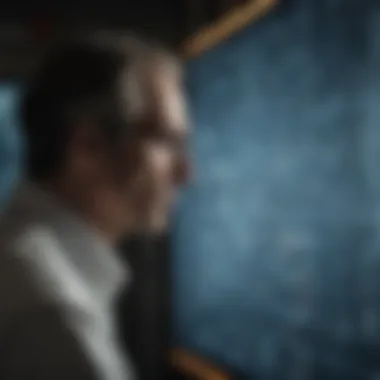

Delving into case studies of notable paranormal accounts provides an engaging way to understand the spectrum of experiences individuals report. These cases often stem from various cultures and epochs, each contributing its own flavor to the narratives.
One particularly compelling example is the infamous Bell Witch case from the early 19th century in Tennessee. Allegedly, the Bell family experienced a series of inexplicable disturbances, including voices, physical assaults, and strange manifestations. This case not only stirred local communities but also resonated throughout American folklore, cementing its place in the annals of paranormal history. This account reflects the complexities of social dynamics and belief systems, showing how personal stories intertwine with broader cultural narratives.
Another significant case is the Amityville Horror. Originating from a gruesome family tragedy, the subsequent reports of haunting in the Amityville house have sparked countless discussions and adaptations in popular culture. The embellishment of these narratives in movies has both popularized and sensationalized the core events, leading to a fog of belief and skepticism that continues to envelop the original tale.
Through these famous accounts, readers can weigh the evidences within the contexts of their own beliefs and values.
The Impact of Personal Stories
The impact of personal stories extends beyond mere interest; they shape perceptions and inform understanding of paranormal experiences. Stories create a shared space where people feel comfortable discussing their own encounters. It’s a ripple effect; one person’s tale may encourage another to share their own, thus forming a community of shared experiences.
These narratives can also provide a psychological benefit. For someone who has experienced something they cannot explain, hearing another's story can provide validation. It assures them that they aren't alone in their experiences, which can be incredibly comforting. Additionally, it can spark curiosity about the phenomena, leading to further exploration and understanding.
In the age of digital communication, platforms like Reddit and Facebook allow for the rapid sharing of these personal accounts, bridging geographical divides. This online presence fosters an environment of acceptance, encouraging individuals to present their stories without fear of judgement. The democratization of storytelling about paranormal encounters enriches the knowledge pool, emphasizing the diversity of experiences.
Ethical Considerations
In the realm of the paranormal, discussions surrounding ethical considerations take center stage, revealing the delicate balance between belief and scientific scrutiny. The moment we dive into narratives involving ghosts, UFOs, or psychic phenomena, we must tread lightly, respecting the deeply held beliefs of those who have experienced such events. Acknowledging the subjective nature of personal experiences is crucial; individuals have their reasons for confronting and considering the unknown. These stories, whether perceived as authentic or not, often shape identities and coping mechanisms for many.
When discussing paranormal phenomena, we must not lose sight of the emotional and psychological implications for those involved. Moreover, the risk of dismissing these experiences outright can lead to a sense of alienation among individuals seeking understanding. Therefore, it’s vital to engage in respectful dialogue that honors these narratives while keeping an open mind.
Respecting Belief and Experience
Respecting belief systems and individual experiences is a cornerstone of ethical engagement with paranormal subjects. Each account of a ghost sighting, an alien encounter, or a psychic reading carries a weight of personal significance. Dismissing these experiences without consideration can not only be seen as judgmental but can also have adverse effects on the individual's well-being. Think of it this way: everyone comes to the table with their own history, emotions, and context.
- Empathy: Listening actively to personal stories fosters a deeper understanding of various perspectives.
- Validation: Acknowledging that experiences are real for the individual, regardless of their origins, promotes healthy discussion.
- Inclusivity: Creating spaces where differing beliefs can coexist enriches the discourse.
It’s essential to balance skepticism with compassion. While we maintain a critical lens, it’s equally important to allow space for the believer. This duality in approach aids in building trust, which is vastly important for those willing to share their encounters with the paranormal.
The Role of Skepticism
Skepticism acts as a guiding principle in evaluating paranormal phenomena, bringing a sense of balance to the conversation. However, skepticism should not translate to mere cynicism. Instead, it is about adopting a critical stance, asking questions with the intent to derive understanding rather than to debunk.
"In a world where belief often overshadows reason, skepticism provides the light needed to navigate the unknown."
- Encourages Inquiry: Engaging skeptically encourages deeper investigation into the nature of these experiences, pushing individuals to seek evidence and question narratives.
- Promotes Balance: Presenting both sides of the conversation—believers and skeptics—leads to a more nuanced understanding of the phenomena.
- Prevents Exploitation: Critical evaluation discourages fraudulent practices within paranormal circles, protecting vulnerable individuals from potential manipulation.
Ultimately, fostering an environment where skepticism coexists with genuine respect for beliefs leads to richer discussions. In addressing the ethical dimensions of paranormal explorations, we find a path to greater understanding—one where all parties feel valued and heard, paving the way for meaningful discourse about life's mysteries.
Culmination: Synthesizing Perspectives
In the grand tapestry weaved through this article, we encapsulate the multifaceted nature of paranormal experiences, providing a framework to understand their significance in both individual and societal contexts. The journey through this topic is not merely about detailing ghost sightings or the unexplained; it's about comprehensively addressing why these phenomena matter and how they shape our collective psyche.
Importance of Diverse Viewpoints
The myriad of perspectives explored—from personal narratives to cultural frameworks—highlights the inherent complexity of the paranormal. Each experience, whether it stems from folklore or scientific inquiry, contributes to our understanding of what it means to confront the unknown. By synthesizing these perspectives, we create a holistic view that values both skepticism and belief, enhancing our dialogue around such phenomena.
Benefits of Critical Exploration
Engaging with paranormal experiences critically allows us to address misconceptions and foster open-minded discussions. It provides room for curiosity while underscoring the necessity of discernment. Through examining these narratives without jumping to conclusions, we can appreciate them for what they reveal about human emotions, fears, and hopes.
"The essence of the paranormal is not just the mystery it conveys; it's the reflection of our deepest beliefs about life and death, reality and fiction."
Considerations for Future Engagement
As we move forward, embracing a synthesis of skepticism and belief not only enriches our understanding but invites us to delve deeper into the experiences that connect us across cultures and time. The paranormal is not merely a relic of superstition; it shapes our inquiries into existence and the very nature of consciousness.
Future Directions in Paranormal Research
Looking ahead, the field of paranormal research is ripe with opportunities for innovative explorations. As science and technology evolve, so too does the potential for examining these experiences with fresh eyes. Increased interdisciplinary collaboration between psychologists, anthropologists, and paranormal investigators could unearth deeper insights into these phenomena. Moreover, enhanced methodologies can allow us to analyze data in more nuanced ways, possibly shedding light on previously uncharted territories of human experience.
Key areas of focus may include:
- Technological advancements: Utilizing virtual reality to replicate paranormal experiences for research.
- Cultural studies: Documenting and analyzing how various cultures interpret paranormal events.
- Psychological frameworks: Understanding the cognitive processes that lead to paranormal beliefs.
Embracing Ambiguity
As we conclude the exploration of paranormal experiences, it’s essential to recognize that ambiguity is a pivotal aspect of understanding such phenomena. Rather than seeking concrete answers, embracing uncertainty can offer a richer tapestry of knowledge suited to the complexities of human experience.
Ambiguity allows for a more fluid interpretation of experiences that often defy categorization. Shunning strict boundaries invites room for individual perceptions and cultural variances to coexist. Acknowledging that not all questions have explicit answers can open pathways to not just understanding but experiencing the depth of what the paranormal entails.


